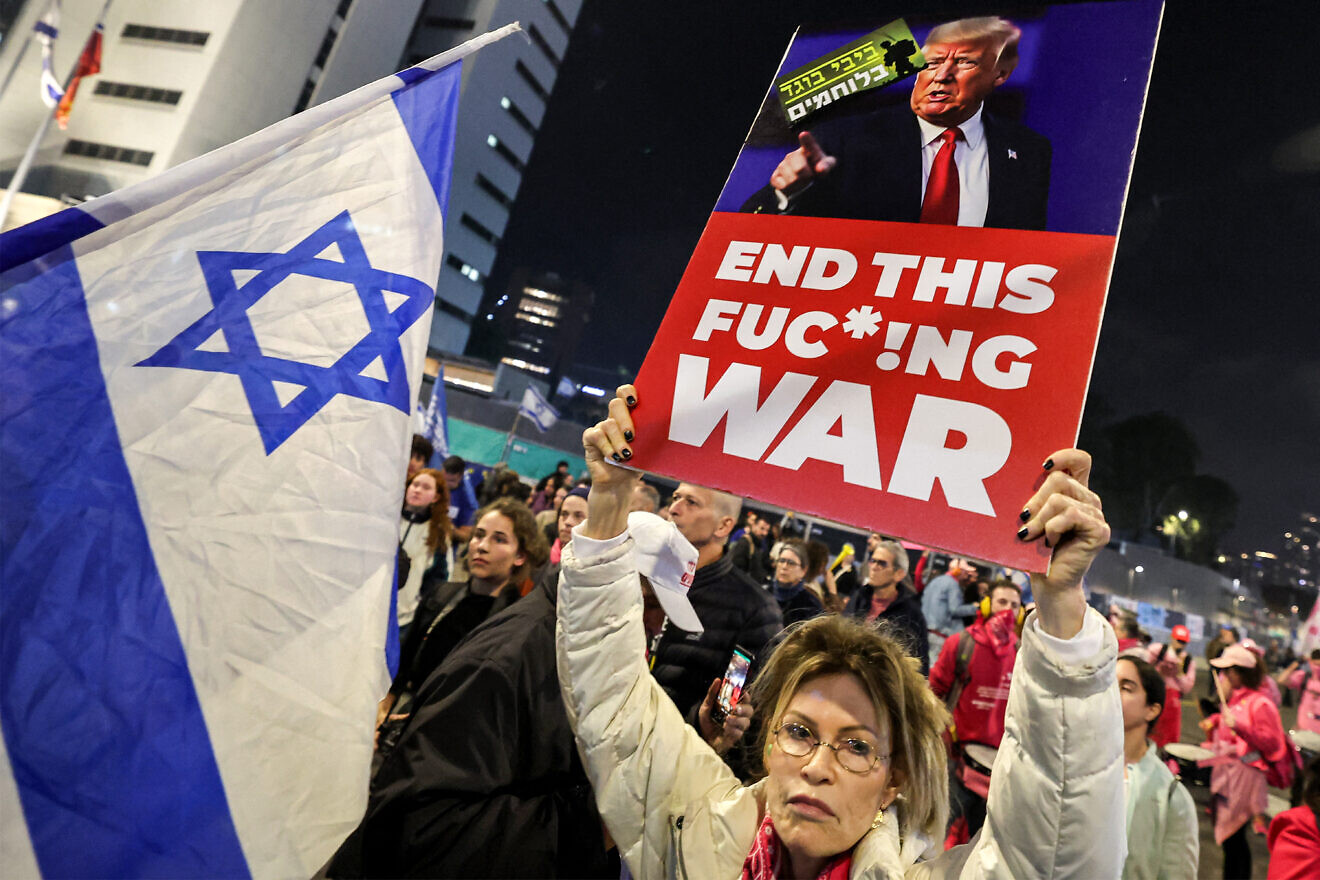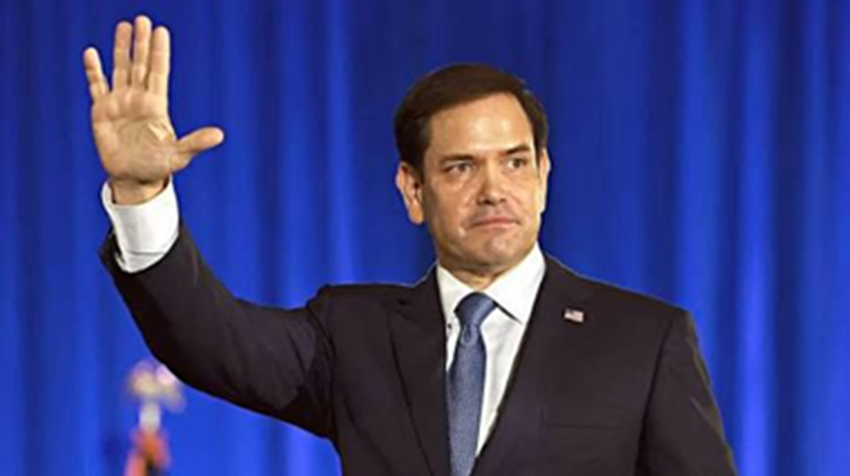Credit: Jack Guez/AFP via Getty Images.
By Joshua Marks
U.S. President-elect Donald Trump said on Monday that ceasefire negotiations between Israel and Hamas are near completion, and cautioned that failure to finalize the agreement could lead to unprecedented challenges.
“We are very close to getting it done, and they have to get it done. If they don’t get it done, there’s going to be a lot of trouble out there like they have never seen before,” Trump told Rob Schmitt on his eponymous show on conservative cable news channel Newsmax.
“They will get it done, and I understand there’s been a handshake and they are getting it finished, maybe by the end of the week,” Trump, who will be sworn in for his second term in the White House on Jan. 20, continued, adding that “it has to take place.”
Meanwhile, outgoing President Joe Biden said on Monday in a farewell foreign policy address at the State Department that Israel and Hamas were “on the brink” of agreeing to a ceasefire proposal that he first outlined in May.
“We’re pressing hard to close this,” said Biden. “The deal we have structured frees the hostages, halts the fighting, provides security to Israel and will allow us to significantly surge humanitarian assistance to the Palestinians who suffered terribly in this war that Hamas started. They’ve been through hell.”
“So many innocent people have been killed, so many communities have been destroyed,” he added. “Palestinian people deserve peace and the right to determine their own futures. Israel deserves peace and real security, and the hostages of their families deserve to be reunited.”
Biden reiterated his administration’s efforts to reach a deal in an X post later on Monday.
Biden spoke with Israeli Prime Minister Benjamin Netanyahu on the phone on Sunday to discuss the ongoing negotiations with Hamas.
With Trump set to take office next week, a rivalry over credit for the potential deal has emerged, according to Kan News. Insiders suggest Trump’s pressure on the parties has been instrumental, while Netanyahu appears keen to align positively with the incoming administration, despite opposition to the emerging agreement from key members of his coalition.
Israeli Finance Minister Bezalel Smotrich on Monday called the emerging ceasefire agreement a “catastrophe” for Israel’s security, stressing that his Religious Zionism Party would not sign it.
“The emerging deal is a catastrophe for the national security of the State of Israel,” said Smotrich. “We will not be part of a surrender deal that includes the release of arch-terrorists, halting the war, undermining the achievements that were secured with many lives lost, and abandoning numerous hostages.”
Hamas is holding 98 hostages in Gaza, 94 of whom were kidnapped on Oct. 7, 2023, and four of whom were captured in 2014, according to the Israeli Prime Minister’s Office. Thirty-six of the hostages Hamas is holding are deceased, including two from 2014 (Hadar Goldin and Oron Shaul).
“Part of the deal is we’re going to bring bodies out. Bodies from what? Why would they have died? But they lived in tunnels that were three feet high in some cases, some cases less than that with closed ends,” Trump said in the Newsmax interview. “Can you imagine that? And they’ve been like this for so long.”
Trump then claimed that the Hamas-led attack on Oct. 7, 2023, would not have occurred if he was president. “Iran didn’t have the money to give” to Hamas during his first term, he said. “Iran was broke essentially. Now they have a lot of money, although they have been hurt over the last few months certainly,” he added, in an apparent reference to Israel’s attacks on the Islamic Republic, the weakening of the Hezbollah terrorist group in Lebanon and the collapse of Syria’s Assad regime.
Jerusalem could announce a deal with Hamas in the coming days, with hostages set to be released on the first day of a ceasefire.
Senior Israeli negotiators remain in Doha to finalize the deal.
The agreement includes the release of 33 hostages in the first phase, followed by the release of 1,300 Palestinian terrorists in Israeli prisons, including many serving life sentences, Kan News reported on Monday.
However, the BBC reported slightly different figures, with Israel slated to release 1,000 Palestinian prisoners, including 190 serving sentences of 15 years or more. The British public broadcaster reported that the first phase will see Hamas free 34 hostages.
Three hostages would be released initially by Hamas, followed by the Israel Defense Forces’ withdrawal from populated areas in Gaza, a Palestinian official told the BBC.
After one week, Hamas will then release an additional four hostages, and Israel will allow displaced Gazans to return from the south to the north, but only on foot along the coastal road. Vehicles and carts will pass through a monitored passage that the report described as “adjacent to Salah al-Din Road, monitored by an X-ray machine operated by a Qatari-Egyptian technical security team.”
The agreement stipulates that Israeli forces will stay in the Philadelphi Corridor and maintain an 800-meter buffer zone along the eastern and northern borders during the first phase, which is set to last 42 days, according to the BBC.
At the end of the first phase, Israel is to withdraw from the Philadelphi Corridor, according to Kan. In Phase 2, additional hostages and bodies will be released, along with a large-scale release of Palestinian terrorists. The IDF will continue its withdrawal from Gaza.
Negotiations for the second and third phases of the deal are set to begin on the 16th day of the ceasefire.
Hamas reportedly requested the body of the group’s slain leader, Yahya Sinwar, as part of the first phase of the deal. However, Israeli officials strongly rejected the demand, stating: “Israel will not hand over the body of arch-terrorist Sinwar under any circumstances.”
Kan cited a senior Israeli official as saying, “We will not leave Gaza until all our hostages are released. We are safeguarding strategic assets to ensure the success of the negotiations.”
Source: JNS


































